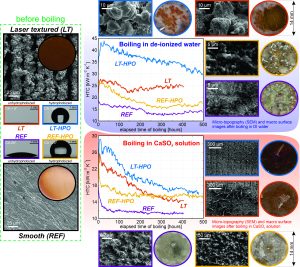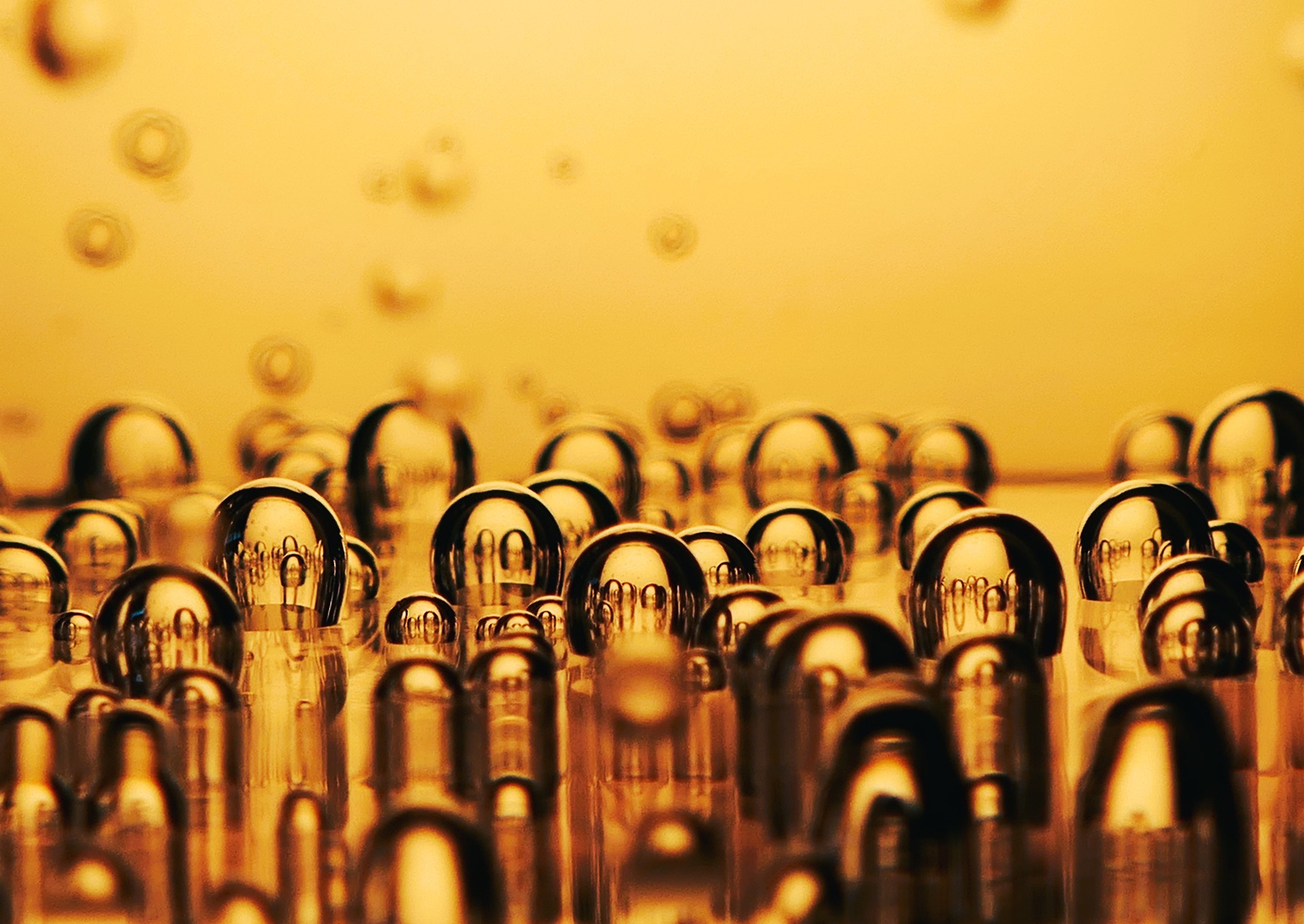Researchers from Laboratory for Thermal Technology (LTT) conducted a comprehensive experimental study, focusing on characterizing the degradation mechanisms induced by long-term nucleate pool boiling in water and aqueous salt solutions. The results of the study were published in Applied Thermal Engineering (IF = 6.4).
The characteristics of boiling surfaces can drastically change during long-term operation, which is reflected in gradual deterioration of boiling heat transfer intensity. To design reliable phase-change systems, one should know the degradation mechanisms induced by nucleate boiling as well as their influence on the boiling interface and its operational characteristics.
Over more than 5000 hours of vigorous nucleate boiling on interfaces with modified microstructure and wetting properties, the authors established the connection between boiling heat transfer deterioration and changes of surface chemistry, micro-topography, and wettability.

The authors demonstrated that laser-textured surfaces exhibited up to a tenfold lower degradation rates in de-ionized water and in an aqueous salt solution. In the latter, they additionally displayed excellent mitigation of heterogeneous salt crystallization.
Article in avaliable on: https://doi.org/10.1016/j.applthermaleng.2024.122540
